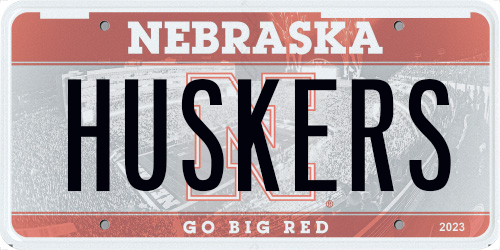The International Registration Plan (IRP) is a licensing compact between member jurisdictions includes all US states (except Alaska and Hawaii), District of Columbia and the Canadian provinces. Registrations issued under this agreement are commonly referred to as "apportioned" or "prorated" registrations. Apportioned registration is an optional method of registration that provides for licensing a fleet of vehicles, operating in two or more jurisdictions, by payment of fees to the base jurisdiction. The base jurisdiction is responsible for transmitting the fees owed to the affected jurisdiction(s). Registration fees are determined by the type of operation (for-hire, exempt or private), the percentage of miles traveled in each member jurisdiction, and the registered combined gross weight (CGW) of each vehicle. IRP registrants are required to maintain specific mileage records supporting their operation and must be provided for audit. Nebraska became a member of IRP in 1975.
New and renewing applicants use actual miles for the preceding year (July 1 - June 30) or portion there of; if you do not have actual mileage to report during the preceding year, you will use the Average Per-Vehicle Distance Chart (AVDC) provided by the Department. Fees are calculated by multiplying the fee for that jurisdiction times the appropriate mileage percentage. The sum of all the fees calculated for each jurisdiction equals the total registration fees due.
IRP registrants are required to maintain specific mileage records supporting their operation and must be provided during an audit. All registrants are subject to audit.
Nebraska is a member of the Performance Registration Information Systems and Management (PRISM) program; PRISM is a federal/state partnership to identify motor carriers with deficient safety records, and to tie a carrier's safety fitness to the ability to register trucks. PRISM links the Federal Motor Carrier Safety Administration's (FMCSA) motor carrier safety information with the state's motor vehicle registration process. It determines the motor carrier's safety fitness prior to issuing a registration plate, and requires unsafe carriers to improve its safety performance through an improvement process and where necessary, applies registration sanctions.
Who Qualifies for IRP?
To qualify for IRP the carrier must:
- Travel in two or more IRP jurisdictions (including Nebraska)
- Vehicles are used for transporting persons or property
- Have a registered gross weight or actual weight in excess of 26,000 lbs. or has three (3) or more axles, regardless of weight
- Are used in combination and the actual weight of the combination exceeds 26,000 lbs.















 International Registration Plan (IRP)
International Registration Plan (IRP)
 Powered by
Powered by